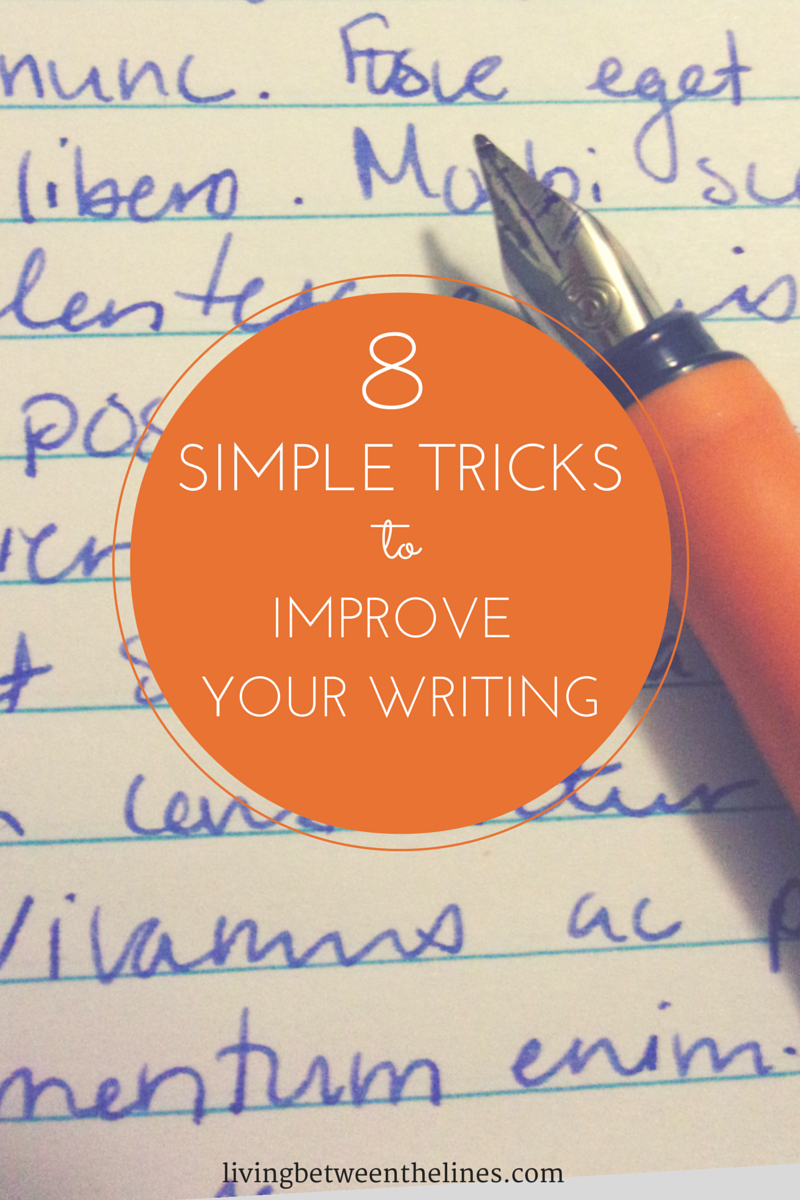No matter where you go or what you do in life, you’re probably going to have to communicate with other people. Which isn’t all bad, because that can be great, but people can also be the worst. Whether it’s on paper or face-to-face, getting your point across to others can be downright impossible. Since we’re forced to live among each other, I guess we could all use some tricks to improve writing. So, in the interest of not being the worst, here are some simple steps we can all take to make our writing better.
8 Simple Tricks to Improve Writing
1. Read.
Reading and writing are two sides of the same coin, doing one will always help with the other. You have your own personal writing style, but you probably admire someone else’s, too – whether it’s your favorite BuzzFeed contributor or Bukowski. Reading their work before your start your own can help you pinpoint and emulate the elements of their style that you love.
2. Write with purpose.
Everything you write has a purpose – your paper, even the paragraphs and sentences that make it, they’re all being written for a reason. What are you trying to do? There are as many reasons to write as there are written works, but narrow down your basic goals and purposes to keep your writing focused and sharp.
3. Plan ahead.
A good outline will always improve your writing. You get to spend less time worrying about where you’re going and more time focused on exactly how to say what you mean, which will make you so much more effective. I’ve actually already written a complete guide to planning a paper, if you want more information on how to plan and outline effectively.
4. Stop overthinking it.
If you spend all your designated writing time worrying that you’ll make a mistake, you’re going to limit your productivity. Even if what you’ve written isn’t perfect just yet, that’s what editing is for. The most important thing is to get your ideas on paper. Then you can go back and refine them until they’re a true expression of what you meant.
5. Use interesting language.
Words and structure will set the mood for your paper. Repetitive words and boring structure will not make for an interesting paper. Words and structure need to be varied and exciting in your paper.
Just now, you probably lost a lot of interest in this list – it’s because it got boring. I basically wrote the same sentence with slightly different information three times in a row, and it sucked to read. But when you’ve been writing a lot, it’s easy to get numb to how interesting your language is. Use online (or in-print!) thesauruses to vary your vocab, and make a conscious effort to change up your sentence structure to take your writing to the next level.
6. Take breaks.
What’s worse – three hours of nonstop writing, or an accidental three hour study break? Trick question, both are awful. Take breaks when you need them, but don’t abandon your project altogether. Writing takes a certain mental momentum, and abandoning your work completely might make it hard to come back to. Stay focused on your topic, but step away from the keyboard and take some time to think or review.
7. Read your writing out loud.
For me personally, realizing this was a game-changer when it came to editing. Reading out loud makes you slow down and focus, and you’ll catch errors and awkward-sounding bits a lot more easily with your ears than with your eyes. You’ll also notice repeated words or boring structures a lot more easily if you hear them.
8. Exchange with a friend.
You are probably a wonderful, intelligent, gifted writer. But you’re also probably limited by your own perspective. A friend will notice things that you won’t – whether they’re just typos, or more glaring issues like off-topic tangents or circular logic. A good proofreader can save you from putting mistakes out into the world, so don’t be afraid to ask for help!
And that’s a wrap! Hopefully you can use these 8 simple tricks to improve your writing and your interactions with all those other humans out there. What are your favorite writing strategies? What do you like to focus on when you’re writing?



